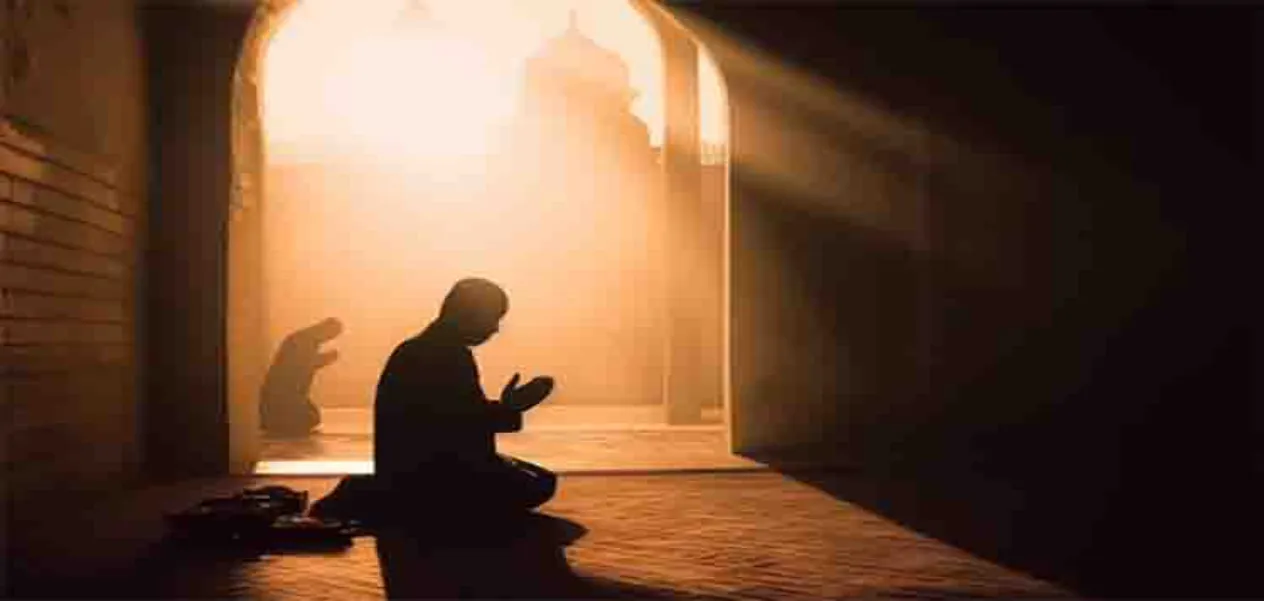
Eman Sakina
When I see a gloomy cloud hovering above, I would like to ask the question “What’s bothering you?” myself and others. And for almost every answer to that question, you can see the solution vividly- “Be grateful.”
Friday Musings
And it is true- gratitude can help us see all our problems in a completely different light. It can help us focus on finding solutions rather than complaining. It helps us stay positive and happy, even in tough situations. It helps us work even harder in life so we never take anything for granted.
“Be grateful to Allah for whoso is grateful is grateful for the good of his soul.” [Surah 31, Ayah 12]
Gratitude is a mode of thinking (a perspective on life) that turns off so many of our Nafs unfavorable emotions. Low self-esteem, enmity, greed, hate, tension from wanting more, indolence, and so forth... Ingratitude is linked to so many unpleasant feelings.
Gratitude is the only mindset that lies at the heart of patience, happiness, and hard work.
Gratitude purifies your spirit by removing the rotten layers of these unfavorable feelings. No other attitude is as powerful as gratitude… possibly the ONLY one powerful enough to rid us of all these other hateful emotions. It is NOT an easy thing to be a truly grateful Muslim. Most of us, despite reading and listening to everything on gratitude, will remain ungrateful people. And that is not a mystery nor is it a bold opinion of mine.
Allah says repeatedly in the Quran: “And if you should count the favor of Allah, you could not enumerate them. Indeed, mankind is [generally] most unjust and ungrateful.” [Qu’ran: Chapter 14, Verse 34]
“And truly your Lord is gracious to mankind, but most of them are not grateful.” [Qur’an Chapter 27, Ayah 74]
So, let’s face it- Ingratitude comes easily to us. Gratitude, on the other hand, does not.
We should be grateful to Allah for everything that we possess including our wealth, health, status, intellectual abilities, and life.
We should recognize that our very existence and our continuing sustenance are dependent on Allah. Whatever praise is due, therefore, it is due to Him alone, for nobody has the power or the resources to give you anything except by His will.
His bounties and blessings are countless. Allah says: Is, then, He who creates comparable to any that cannot create? Will you not, then, take heed?
And should you try to count Allah’s blessings, you could never compute them. Allah is, indeed, All-forgiving, All-compassionate; and Allah knows all that you keep secret as well as all that you bring into the open. (An-Nahl 16:17-19)
In many places in the Qur’an, Allah compares the terms ‘shukr’ and ‘kufr’. (Al-Baqara 2:152, Luqman 31: 12). Iman implies ‘shukr’ or gratefulness as opposed to ‘kufr’ or ungratefulness.
An unbeliever is ungrateful to the Being who has given him everything, whereas a mu’min or a believer is ever thankful for all that Allah has given him, for he recognizes that his Lord is Merciful and Loving. (Hud 11:90).
Reflect upon your own life and you will find innumerable occasions when Allah’s ‘hand’ has been holding you and helping you. So often, we subconsciously use the expression ‘thank God for this and that’, without realizing the full implications of our words. Allah being the Most Merciful, motivates us repeatedly in the Quran by saying that He will give reward to all those who are grateful.
“And Allah will certainly reward the grateful.” [Qur’an: Surah 3, Ayah 145] “…And whoever desires the reward of this world – We will give him thereof, and whoever desires the reward of the Hereafter – We will give him thereof. And, We will reward the grateful.” [Quran Surah 3: Ayah 145]
Finally, gratitude is not a holiday practice for Muslims.
We do not wait for “Thanksgiving” to be grateful and spend the rest of the year complaining. Don’t count your blessings today and forget about them for the rest of the months.
ALSO READ:
As the effects of gratitude are cumulative it means, that when you practice being grateful for small things daily, the effects of gratitude add on. your mindset slowly transforms until gratitude comes to you.
